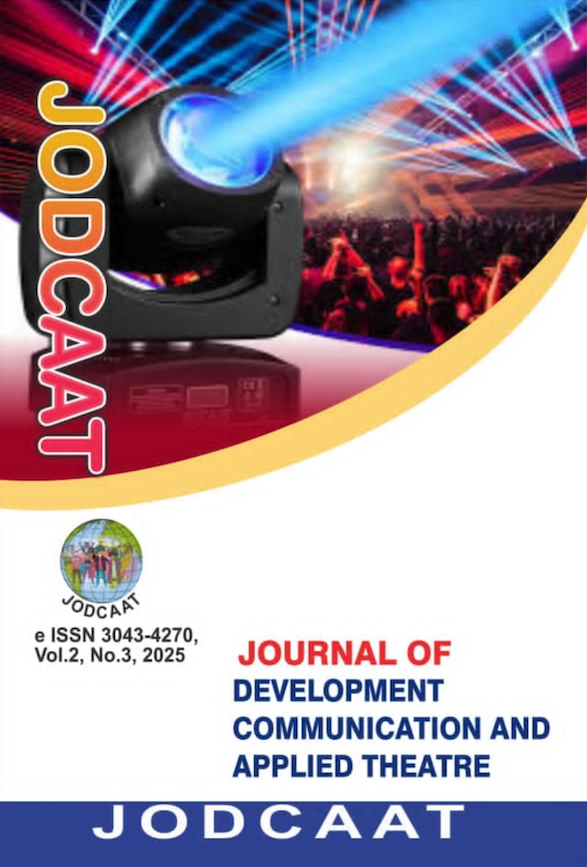UNRAVELING THE METAPHORS OF AKWA-CROSS WOMEN HAIRSTYLES AND CODE NEGATION IN VIVIAN CHIJI'S AYAMMA
Abstract
The use of hairstyles in filmmaking may be for purely aesthetic stimulation; but to the Akwa Ibom and Cross River States people in their Akwa-Cross film, hairstyle is a cultural metaphor meant to identify categories of women in their social and marital statuses towards an orderly mutual interplay in the society. Drawing from Ferdinand de Saussure's semiotics in a qualitative research approach, this paper interrogates Ayamma, an Akwa-Cross film, with the bid to probe the metaphoric identities given to women through hairstyles in this society. Findings show that the indigenous hairstyles of the Akwa Ibom and Cross River women bear deep cultural significations that help in regulating men's attitude towards them as an aspect of social control. These hairstyles beautify the women and equally serve as a tool of social control by demarcating the royal, the married and the maiden among them. Etinghe identifies the king's daughter; mmong-mmong depicts married women who have suckled children and with sagged breast; while mkpum show cases the unmarried with firm breasts. Findings further show that using different hairstyles for aesthetics on a single character whose role has not switched may end up impairing the message of the film. The paper concludes that hairstyles in filmmaking should be deployed to promote salient societal values, thereby encouraging good morals among the citizens. Costumiers should rely on facts instead of speculations in their deployment of indigenous cultural symbols to avoid sending wrong signals about people and their values, thereby misrepresenting their heritage.


